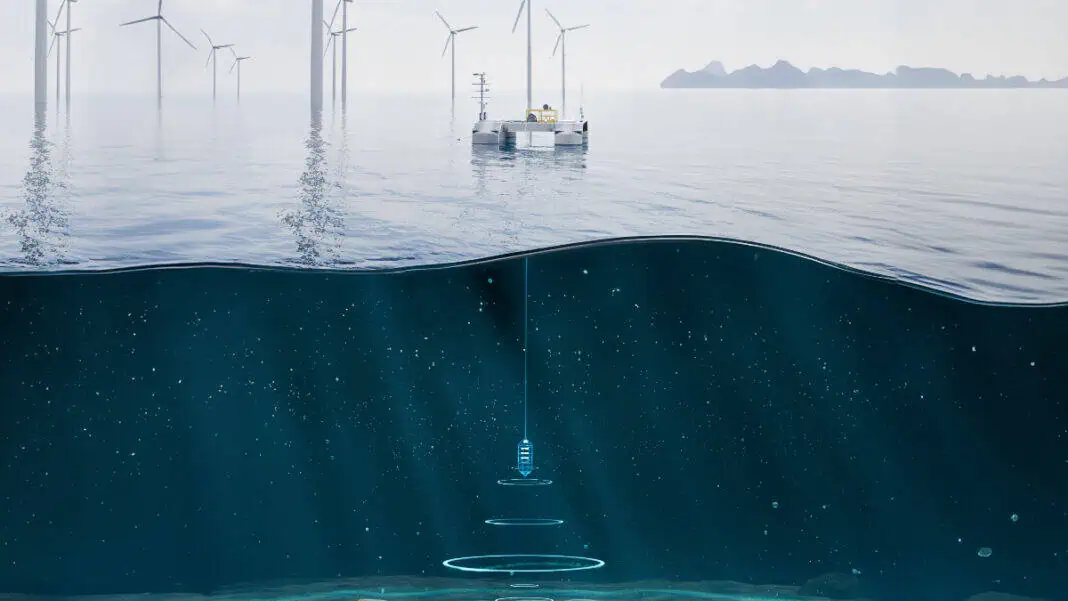Robosys Automation, a leader in marine autonomy systems, has announced it is spearheading Project ORACLES, an innovative initiative set to transform the environmental consenting process for offshore wind farms (OWFs). The Project ORACLES consortium brings together industry and research leaders, including ACUAOcean, MSEIS, Plymouth Marine Laboratories, and the Offshore Renewable Energy (ORE) Catapult.
Funding for Project ORACLES was secured through the UK Research and Innovation (UKRI)’s Innovate UK Launchpad programme, in line with the UK Government’s Levelling Up plan.
Currently the data collection process for environmental monitoring at proposed OWF sites is labour-intensive, with separate providers handling various aspects such as bird monitoring and sea conditions. Data is collected manually and analysed after it reaches shore, significantly slowing down the decision-making process.
Aiming to significantly reduce the approval timeline, Project ORACLES will address this by leveraging advanced marine robotics, advanced autonomous systems, and other digital ocean technologies, to streamline, improve, and accelerate this process, and help meet the UK’s target of 60GW of offshore wind capacity by 2030.
The project’s 14-month research phase will advance the use of clean maritime solutions, including ACUA’s Unmanned Survey Vessel (USV), which will be equipped with a range of environmental sensors (eDNA, ADCP, acoustics) to collect comprehensive, real-time data on marine life, water quality, and environmental changes.
The PROJECT ORACLES consortium will develop the dynamic positioning system (DPS) and a BVLOS (beyond visual line of sight) winch profiling system for water column data collection, and the integrate multiple sensors delivering a novel and highly effective output, together with automated ballasting.
Robosys Automation, already a trusted provider of marine autonomy systems and vessel control systems, will additionally deliver a new capability to operate multiple USVs being operated from a single Remote Operations Centre (ROC).
ACUA’s Pioneer USV boasts the endurance and power required for the demands of offshore data collection and meets the Maritime and Coastguard Agency’s (MCA) Workboat Code 3 (WBC3) for operating beyond port and closed water environments in the UK.
Through these technological advancements, Project ORACLES will enable the launch and recovery of multiple environmental sensor payloads which will facilitate comprehensive and cohesive datasets, improving the accuracy and efficiency of environmental assessments. Sensors such as eDNA, ADCP, and acoustics will allow for continuous monitoring of marine life, water quality, and environmental changes from one vessel.
Project ORACLES’ proposed outcomes will enable deployment of significant payloads, support USVs operating in higher sea states and across extended operating periods, and reduce capital, environmental and operational costs, whilst delivering and managing data more effectively.
The innovations involved not only reduce the need for multiple crewed survey missions but also significantly decreases CO2 emissions and environmental disturbances compared to traditional crewed vessels, therefore aligning with the UK’s clean maritime goals.
In support of the UK government’s Levelling Up agenda, Project ORACLES will have a direct impact on the UK’s South West’s marine innovation cluster, fostering high-skilled jobs, supporting future skills, and contributing to the region’s economic growth. In addition, the project’s outputs will provide new business opportunities in the rapidly expanding global offshore wind market
Nigel Lee, Project Lead and Robosys Automation’s CSO comments: “This ambitious project will revolutionise the environmental consenting process for offshore wind farms (OWFs) in the Celtic Sea and other areas across the UK. These technological innovations will reduce the need for crewed survey missions and accelerate data delivery, enabling a faster, more cost-effective consenting process.”
He continues: “The project’s outcomes will also foster the growth of regional businesses, by opening new markets and supporting the advancement of technological capabilities such as ACUA’s Pioneer USV, and Robosys’ VOYAGER AI advanced maritime autonomy. It will further reinforce the region’s expertise in marine autonomy, clean maritime technologies, and digital ocean innovations to a worldwide stage.”












